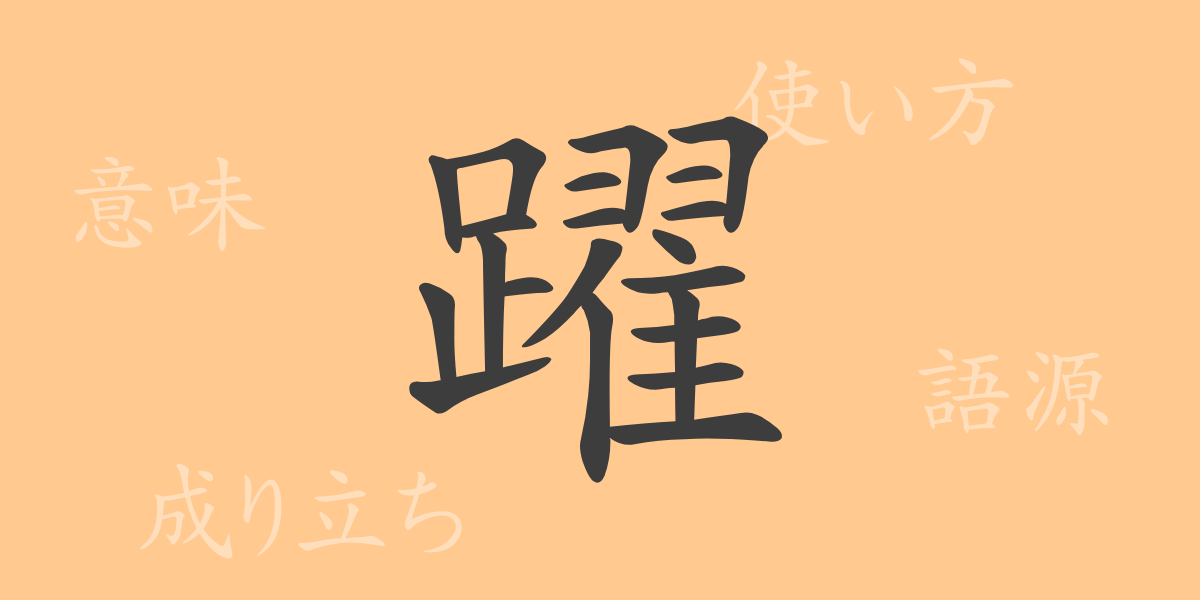Since ancient times, Kanji (かんじ) has been deeply rooted in Japanese culture and language. These characters are not merely symbols; their shapes and meanings enrich our lives and emotions. Today, we will focus on 常用漢字 (じょうようかんじ) “躍” (やく), which symbolizes movement and activity, and explore its captivating charm.
Origin of 躍 (やく)
The Kanji “躍” (やく) originated in ancient China to represent the act of jumping. Its form symbolically captures the motion of a body lifting off the ground, with older scripts depicting feet floating in the air. Over time, this Kanji evolved to also signify progress and advancement.
Meaning and Usage of 躍 (やく)
In addition to its direct meanings of “jump” and “leap,” the Kanji “躍” (やく) also carries symbolic meanings such as “active movement” and “progress.” In daily conversations and writings, it is often used to describe lively progression or to express emotions of excitement.
Reading, Stroke Count, and Radical of 躍 (やく)
The Kanji “躍” (やく) is thoroughly studied in Japanese education due to its reading and structural characteristics.
- Reading: In 音読み (おんよみ), it is read as “ヤク” (やく), and in 訓読み (くんよみ), it is read as “おど.る” (おどる).
- Stroke Count: It has a total of 20 strokes.
- Radical: The radical of 躍 (やく) is “足 (あし・あしへん)” (ashi/ashihen).
Idioms, Phrases, and Proverbs Using 躍 (やく)
There are numerous idioms, phrases, and proverbs in Japanese that include the Kanji “躍” (やく). Here are a few examples:
- 飛躍 (ひやく): Significant progress.
- 跳躍 (ちょうやく): Jumping high.
- 躍進 (やくしん): Rapid advancement.
- 躍動 (やくどう): Vivid movement.
- 一躍 (いちやく): Sudden rise to fame.
Summary of 躍 (やく)
The Kanji “躍” (やく), as its form suggests, evokes a sense of movement and vitality. Its use in Japanese language vividly reflects its meaning, adding rhythm and momentum to our words. In idioms and phrases, this Kanji strengthens the power of expression in various contexts. In daily life, recalling the Kanji “躍” (やく) when accomplishing something or striving to move forward may inspire courage and motivation to take the next step.

























